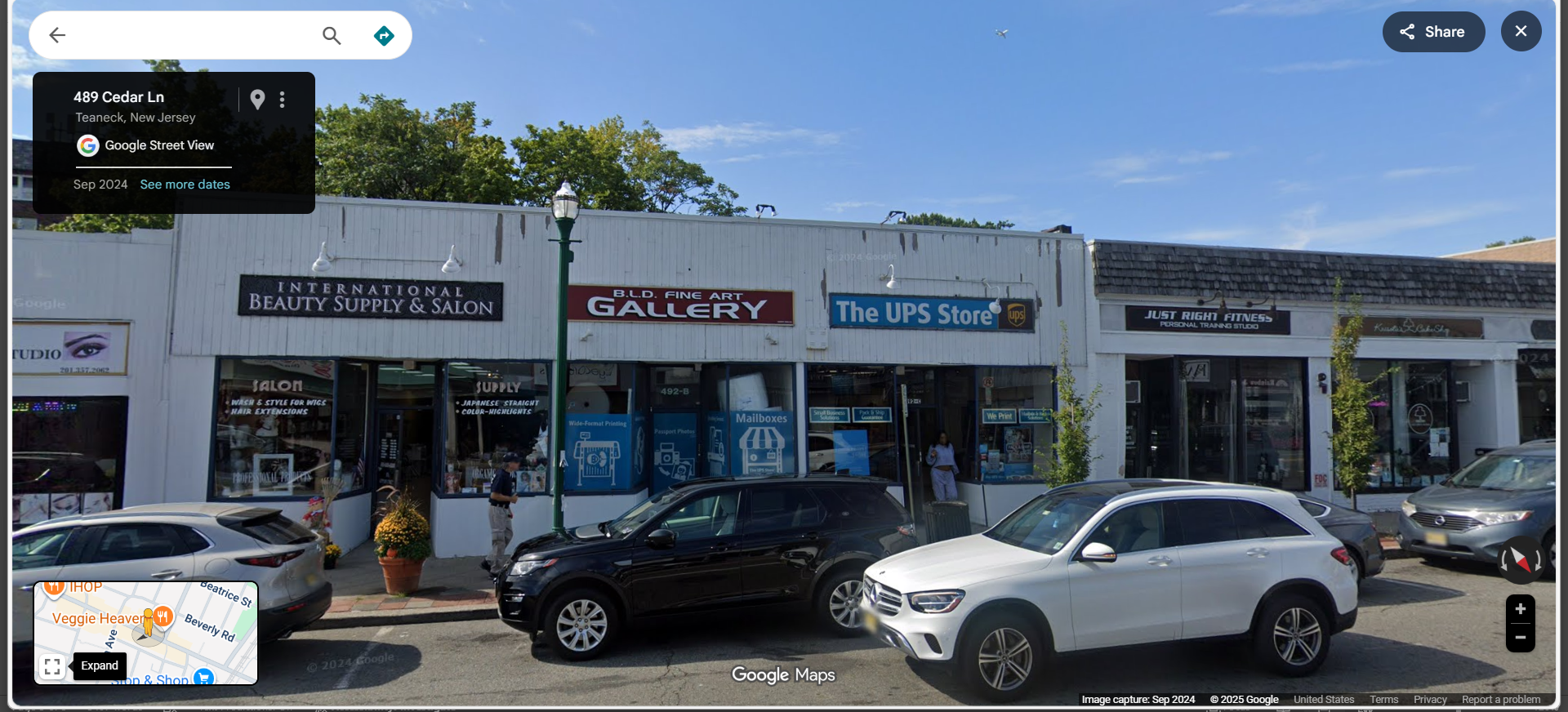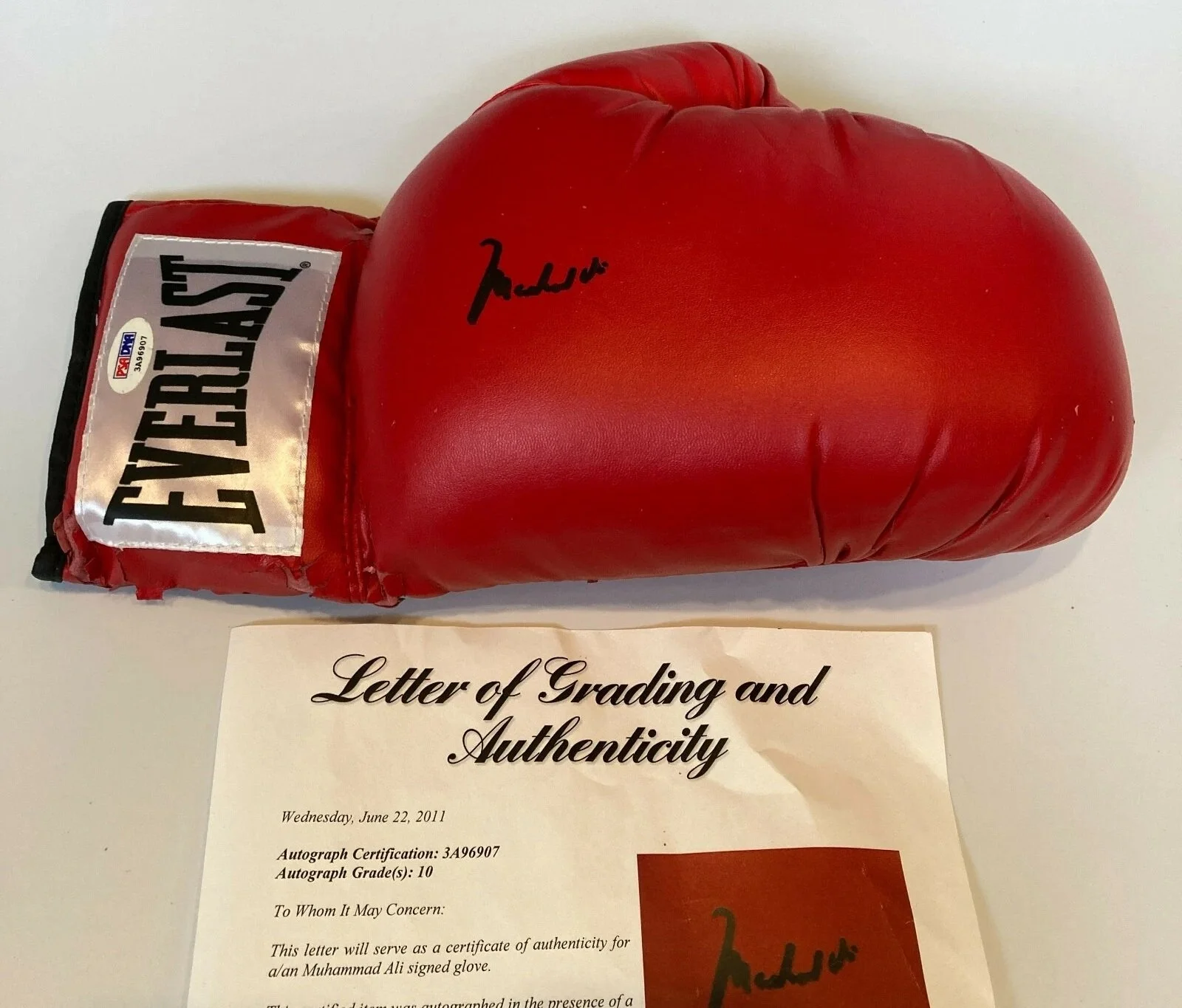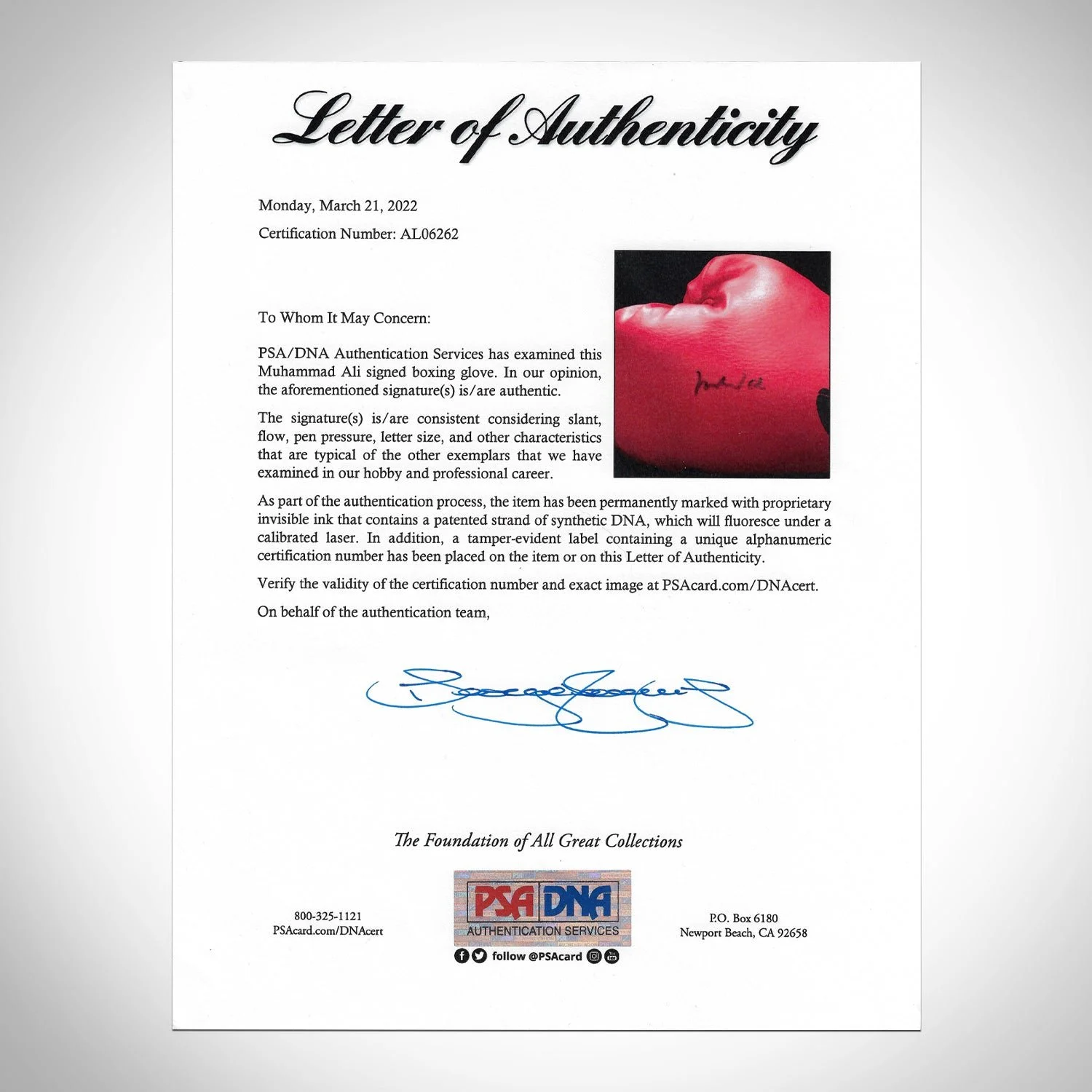Not long ago, a friend proudly posted a picture on Facebook of what was described as the ultimate piece of memorabilia: a boxing glove allegedly signed by Muhammad Ali, Joe Frazier, George Foreman, Mike Tyson, and Floyd Mayweather Jr.
Sadly I called my friend and informed him that this glove, was in my opinion 100% counterfeit and spelled out the facts (stated herein). But what’s really bad is - my friend like most everyone in the charity world will probably not report it, will not go back to the charity to complain and will not go to the providing company because - THEY ARE EMBARRASSED. This counterfeiter banks on that so they get away with it year after year, scamming and defrauding charities out of millions.
At first glance, it looked incredible — a once-in-a-lifetime collectible. But as someone who has worked with charities across North America for years, I didn’t feel excitement. I felt frustration.
Why? Because I knew exactly what this glove represented: another nonprofit, another group of donors, and another charity auction being taken advantage of by fake consignment auction items.
ChatGPT’s Autograph Analysis of the Boxing Legends Glove
I asked ChatGPT to examine the autographs on the glove compared to known authentic signatures. The results were troubling:
Muhammad Ali – Authentic Ali autographs are fluid and slanted. This one was stiff and abbreviated.
Joe Frazier – Genuine Frazier signatures are large and bold. This was cramped and unnatural.
George Foreman – His real autograph is rounded and clear. This was small and rushed.
Mike Tyson – A sharp “M” and distinct “Tyson” are his trademark. This version was oversimplified.
Floyd Mayweather Jr. – Usually flamboyant and sweeping. Here it was compressed and generic.
Even more concerning: all five signatures looked identical in ink, size, and style — something that simply doesn’t happen on real, authentic charity auction items.
The “Glitz and Glamour” Trap in Fundraising Auctions
Here’s the truth: charities often get caught up in the glitz and glamour of flashy memorabilia.
Vendors know this. They know nonprofits don’t live in the world of autographed memorabilia. They know you don’t know which authentication companies are real. And they know you don’t know how to tell authentic charity auction items from counterfeit ones.
So they exploit your good intentions — and your donors’ generosity — against you.
Why a “Certificate of Authenticity” Isn’t Enough
I looked on the “Authentication Company” (the term is used loosely, I entered it into Google Earth and it brought me to this address. Google earth allows the user to look directly at the address in 3D and this (believe it or not) is what I found - it’s a UPS Store in New Jersey. Oddly enough, another “Charity Fundraising” company that is a documented counterfeiter only providing items to the charity world, also uses the same method in Fort Lee, New Jersey. Their address is also a UPS Store - in fact, I have been there in person. The “Suite #”, well that is a PO Box. Are you suspicious yet?
Many nonprofits say:
“Well, it came with a certificate of authenticity, so it must be real.”
Wrong.
Anyone can print a COA on fancy paper.
Many so-called authentication companies operate from nothing more than a UPS Store mailbox.
The only recognized authentication companies in the industry are PSA/DNA, JSA, and Beckett.
If your consignment auction items aren’t backed by one of these names, your nonprofit is at risk.
What If the Boxing Legends Glove Were Real?
If a glove truly existed signed by Ali, Frazier, Foreman, Tyson, and Mayweather, it would be the only one in existence. This fact is confirmed via ChatGpt’s deep investigation across the entire internet.
That would make it priceless — a museum-level artifact, worthy of a Sotheby’s headline. But here’s the reality: these gloves only show up in charity auctions supplied by vendors who prey on nonprofits. If it looks too good to be true, it almost always is.
The Real Risk to Your Donors and Your Nonprofit
When a donor spends thousands on fake charity auction items, the damage goes far beyond the item itself:
Donors feel betrayed — not just by the vendor, but by you.
Your reputation suffers. If one item was fake, how many others were?
Future fundraising drops. That donor may never return, and word spreads quickly.
This is why nonprofits across the U.S. must take consignment auction items seriously. Trust and credibility are everything.
How to Protect Your Charity from Fake Memorabilia
Here’s how nonprofits can avoid being scammed:
✅ Only use vendors who provide consignment auction items with PSA/DNA, JSA, or Beckett authentication.
✅ Verify the address of the authentication company. If it’s a P.O. Box or UPS Store, it’s a red flag.
✅ Check serial numbers in the authenticator’s online database.
✅ Focus on authentic charity auction items that build donor trust and maximize bids.
✅ Partner with experts who provide more than just items — who understand fundraising event planning, professional auctioneer services, and charity travel packages that raise real money.
Why BW Unlimited Is the Trusted Partner for Charities Nationwide
That Facebook post wasn’t exciting — it was a wake-up call. Too many nonprofits are being fooled because they don’t know the difference between authentic and fake auction items.
At BW Unlimited Charity Fundraising, we eliminate the guesswork.
We provide authentic consignment auction items for charity fundraisers across North America.
Our inventory includes autographed memorabilia, luxury charity travel packages, and silent auction items for nonprofits that are guaranteed real.
Every piece we supply is backed by our Authentication Guarantee, so your donors can give with confidence.
We also provide fundraising event planning and professional charity auctioneer services to help you raise more money and protect your reputation.
👉 Learn more: www.bwunlimited.com







